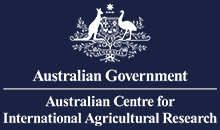Introduction: Technical, social and economic constraints are limiting the effective use of groundwater and ponds for irrigation in many parts of the EGP. Large areas of land remain fallow during the dry months. Access to year-round water for irrigation would significantly improve the productivity of agriculture, improving incomes and food security. Marginal and tenant farmers, […]
Category: All Project Updates
Village Dhaloguri, Site I: Jelepara, West Bengal (Case Study)
Bhagwatipur village Madhubani (Case Study 2)
Introduction: This case study describes the collective model of farming as alternate to marginal based on the preliminary outcomes resulting from a project funded by the Australian Centre for International Agricultural Research (ACIAR). Village: Bhagwatipur village is located in Andhrathari block of Madhubani district, Bihar, India. This village is inhabited by majority of the economically […]
Bhagwatipur village, Madhubani (Case Study)
Introduction: This case study describes the transition from individual farming to cooperative farming that has taken place as a result of a project funded by the Australian Centre for International Agricultural Research (ACIAR). Village: Bhagwatipur village is located in Andhrathari block of Madhubani district, Bihar, India. This village is inhabited by a majority of the […]
Monitoring dry season irrigation by groundwater using STW and DTW in the northwest region of Bangladesh
The objectives of the Bangladesh component of the project is to understand the bio-physical, socio-economic and institutional aspects of groundwater irrigation in the northwest region of Bangladesh. The study is expected to provide the answers to the following questions: How water and land productivity varies from plot to plot or from location to location and […]
Stakeholders meeting in Saptari
Raj Kumar G.C, Program Director, iDE Nepal Rabindra Karki, Program Engineer, iDE Nepal Gun Magar, Senior M and E Officer, iDE Nepal Figure 1 Stakeholder meeting at Simrik Hotel , Lahan Stakeholder inception meeting of Saptari was conducted on March 16, 2016 at Simrik Hotel Lahan. Altogether 36 participants attended this meeting. Participants were from […]
How are we going in answering our key research questions?
It is important to consider the progress we are making in our project which aims to improve the livelihoods of women, marginal and tenant farmers in the Eastern Gangetic Plains, through improved dry season irrigated agriculture. Overall we can be pleased with progress. While there is still much to be done, the foundation is sound. […]
A gender-sensitive approach to dry season irrigation: Piloting a participatory gender training for farmers in Saptari
by Stephanie Leder, WLE-IWMI, and Dipika Das, IWMI In all project sides in the Eastern Gangetic Plains, we observed gendered divisions of labor in agriculture, as well as gendered norms in the villages on speaking up and mobility, which hinder women to take up tasks. Within this context, how can the groups work effectively as […]
Training in soil sampling with the SRFSI team
By Debojit Dutta and Prasun Deb Kanoe In early February 2016 the DSI4MTF team and the SRFSI team collaborated to undertake training in soil sampling. Alison Laing from CSIRO and Arunava Ghosh from UBKV (Department of Agricultural Statistics) were able to accompany IWMI and UBKV field staff to Dholaguri village in West Bengal. In Dholaguri, […]
A new Paradigm for Agriculture?
Recent press coverage of the India Union Budget 2016/2017 highlights the close alignment of our work to national priorities. The article below provides a good summary. The need for production of non-cereal centric crops, with emphasis on better irrigation management using ponds and groundwater is emphasised. The need for improved water and fertilizer use efficiency and […]
Wheat irrigation in Gangetic plains of Bihar – It’s time for a change
Rice-wheat cropping system dominates the agriculture in the Gangetic Plains of the North Bihar. Rice is cultivated during the kharif (monsoon) season with transplanting dates matching with onset of monsoon. Sufficient monsoon rainfall generally precludes the need of irrigation for this crop, except in the event of dry spell. Wheat, which is the main rabi (winter) […]
Sorry, no posts matched your criteria.





